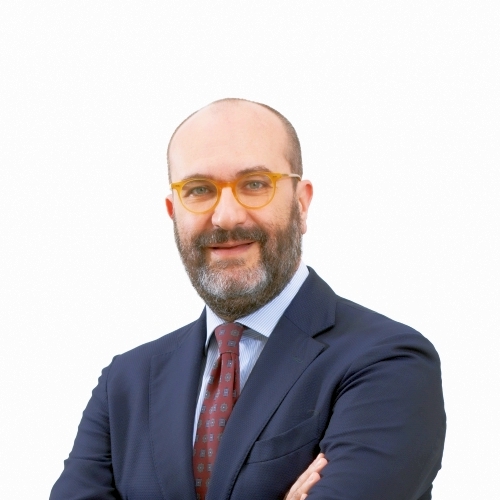il portale dello studente
(portale studente principale)
Self service studenti
(gestione avvisi)
LIUC e-Corsi
(materiale didattico)
Istruzioni per accesso
Guide dello studente
Orario delle lezioni
Calendario degli appelli
Ricevimenti dei docenti
Le persone
A78600 Creative and Cultural Entrepreneurship
Scuola di Economia e Management
Syllabus
Academic Year 2014/15 Second Semester
 |
|
Learning Objectives
At the end of the course the student will be able to:
- Understand the centrality of the creative society in contemporary global competitiveness
- Understand the specificities of creative and cultural industries
- Understand the dynamics of cultural entrepreneurial opportunities in the knowledge society
Learning targets
At the end of the course the student will be able:
- Develop familiarity with entrepreneurial processes of opportunity recognition and exploitation
- Have a detailed focus of cultural and creative sectors
- Develop a business arising from creative and cultural entrepreneurial opportunities
- Develop familiarity with open source paradigm and open innovation processes of entrepreneurial venture in creative and cultural industries
Course Content
This course is concerned with Creative and Cultural Entrepreneurship, a growing global phenomenon that is the practice of setting up a business or an entrepreneurial venture in one of the cultural and creative industries. The cultural creative industries refer to a range of economic activities which are concerned with the generation or exploitation of knowledge and information.
The course will focus on the so-called creative economy, i.e. advertising, architecture, art, crafts, design, fashion, food, film, music, performingarts, publishing, R&D, software, toys and games, TV and radio, and video games. Hence, during the course w ewill focus on how the creative economy brings to get her ideas about the creative industries, the cultural industries, creative cities, clusters and the creative class.
The creative industries have been seen to become increasingly important to economic well-being, and current and future competitiveness is believed to depend on the generation of knowledge through creativity and innovation.United Nations and many Countries have put creative and cultural entrepreneurship at center stage for competitiveness. The creative economy is revitalising manufacturing, services, retailing and entertainment industries. It is changing where people want to live, work and learn – where they think, inventand produce.
The focus of the creative entrepreneur differs from that of the typical business entrepreneur or, indeed, the social entrepreneur in that s/he is concerned first and foremost with the creation and exploitation of creative or intellectual capital. Essentially, creative entrepreneurs are investors in talent – their own and/or other people’s. Creative entrepreneurs need to master specific skills: an understanding of intellectual property is essential, combined with the ability to manage cashflow, key talent and the creative process effectively.
Course Delivery
The course will be taught using the case method developed at Harvard Business School, together with readings, lectures, videos and guests.
Case studies will focus on entrepreneurial processes in cities, regions, firms and indivduals in cultural and creative industries.The case method requires extensive advance preparation for each class, and a significant part of the course grade will be based on participation.
The course also involves a major team project.
Students are responsible for consulting on a regular basis the website of the course [www.erdc.it/cce] where updates, additional material and slides about the course are posted. No excuse accepted for any failure during the course you may incur into due to a delayed consultation of the website.
Sessions will run for three hours with a short break
Optional review/Q&A sessions for interested students during Instructors’ office hours.
There will be a wrap-up session at the end of the course.
Course Evaluation
Grading
- Class participation and cases discussion: 40%
- Team project: 60%
- Attendance adjustment: downward
Feedback
- Class participation: students with insufficient class participation midway through the course will be notified.
Group project
- Instructors reviews
- Class discussion of projects presentations
- Faculty comments and final mark
Criteria for evaluating class contribution
- This is a course about a framework for thinking
- The cases are intended to allow the class to explore the concepts
- The “answer” is less important than the thinking process
- Analytical rigoris highly valued
- No outside-of-case data is allowed or rewarded
- Raise your hand to participate
- Build on previous contributions
- Be concise; marshal evidence; "show your logic''
- Integrate across facts, issues, and cases
- Take a constructive approach and tone
- Be prepared for follow up questions'
- Participate while not speaking
- No questions to the instructor are appropriate during the case discussion
- What if you are not called on
Team Projects Guidelines (see the course web site for details and examples)
- Students will be asked to apply their learning in a group project that analyzes the entrepreneurial process of a selected city, region, firm or individual involved in creative and cultural industries.
- Groups must include 4 or 5 students.
- Groups are encouraged to be mixed.
- The group project accounts for the 60% of the final grade and is in lieu of a final exam.
- The group project is made of a 20 minutes Powerpoint/Keynote/Video presentation plus a 15 pages paper
- Instructions on how to select the target case both paper and presentation will be uploaded on the course website and discussed with your facilitator.
- Each group will be assigned to a facilitator
in order to have access to the complete syllabus please enter on the student self service
